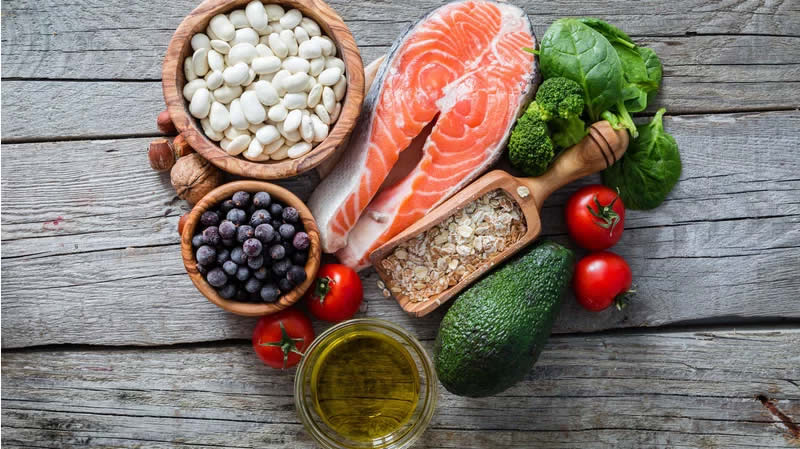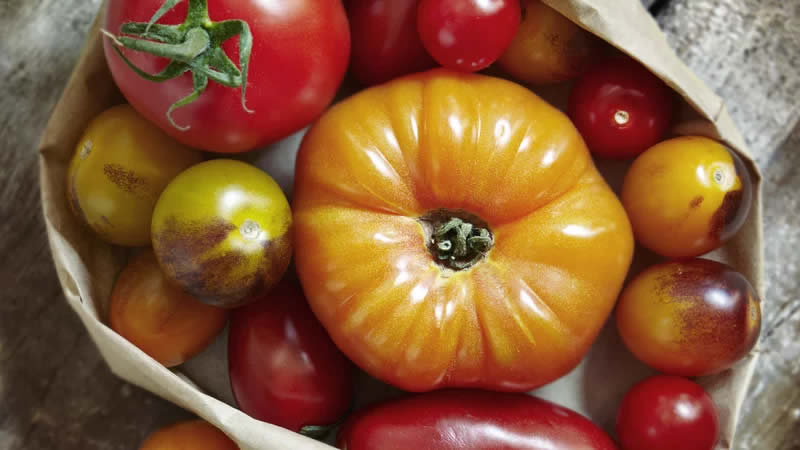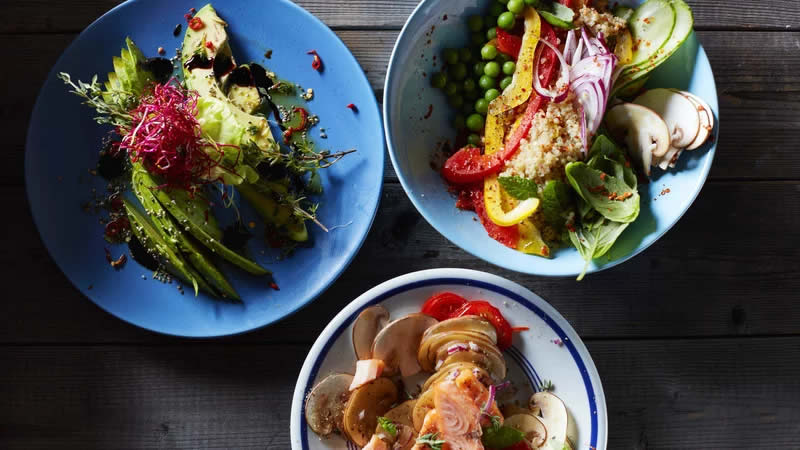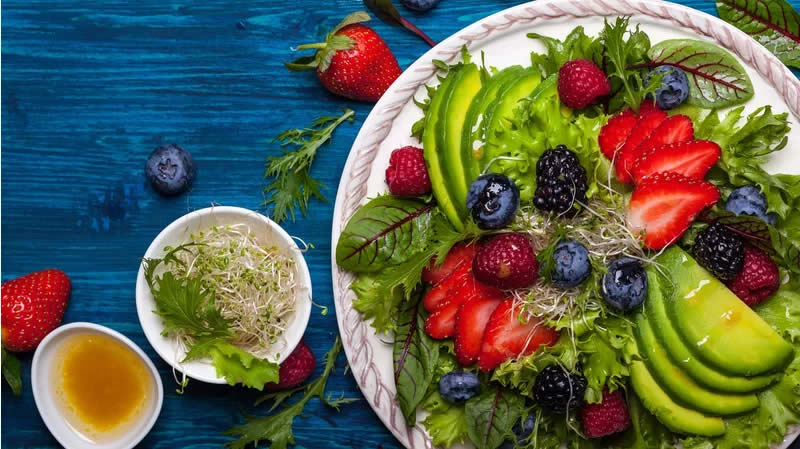An anti-inflammatory diet: Less pain, happy gut, more energy, and more?
Tom Brady, Venus Williams, Penélope Cruz, and Rosie Huntington-Whiteley have something in common, aside from being unnaturally beautiful: They’ve all followed forms of anti-inflammatory (AI) diets at one time or another. Tom has done it to boost his performance on the football field. Venus said she did it to help keep her autoimmune disorder in check. And Penélope and Rosie have followed an AI-style detox to keep their skin radiant. These celeb diets may be buzzy, but the tenets of an AI diet—more plants, less sugar, no refined stuff—are far from a passing fad. “Who needs to eat a more anti-inflammatory diet? Everyone,” says Barry Sears, PhD, creator of The Zone diet, who has spent decades studying chronic inflammation. Here’s the lowdown on inflammation—and how to fight it with food.
[contentblock id=1 img=adsense.png]
What the heck is inflammation, anyway?
Believe it or not, inflammation starts as a good thing. It happens when your immune system sends out white blood cells and “warrior” compounds like eicosanoids to attack invading viruses, bacteria, or toxins. A classic example of totally normal inflammation: pain, heat, redness, and swelling around a wound or injury (think of a tender sprained ankle). “There’s a separate response called ‘resolution’ that brings the dogs of war back to their barracks and heals your tissues,” says Sears. “The first phase of inflammation causes cellular destruction, and the second phase, resolution, begins cellular rejuvenation. As long as those phases are balanced, you stay well.” But for more and more of us, the balance never happens. That’s because sugar, refined grains, and saturated fat can also trigger an inflammatory immune response, notes Sears, and the typical Western diet is packed with them, meaning we’re inflaming our bodies over and over, every time we eat. Meanwhile, guess what the average American gets way too little of: fruits and non-starchy veggies, which are packed with antioxidants that help cool things down and reduce the intensity of the initial inflammatory response, and fatty fish, a great source of omega-3 fatty acids, which can help move your body into the resolution phase.
How to spot an anti-inflammatory diet
There isn’t just one specific “AI Diet,” unlike Atkins or South Beach. Sears’s Zone diet and Dr. Hyman’s Detox are both highly anti-inflammatory, as is the soy-heavy plan that integrative medicine guru Andrew Weil, MD, offers for free on his website. Paleo and Whole30 diets are both AI, too. But the plan with the most research-backed anti-inflammatory cred is the traditional Mediterranean diet, emphasizing fruits, vegetables, whole grains, legumes, fish, and olive oil. Several very large studies—including the famed Nurses’ Health Study—have found that people who follow a Mediterranean pattern of eating have lower levels of the inflammatory markers C-reactive protein and interleukin-6 in their blood compared with those who don’t.
Read More: 8 Healthy Foods Nutritionists Say You Should Be Eating
This may be one reason the Mediterranean diet is linked to so many health benefits, from keeping weight down to slashing heart and stroke risk, notes Dr. Hu.The goals of an AI plan are simple: Cut way back on foods that trigger an inflammatory response and eat more of the foods that heal damage. While there are some variations in what’s allowed and what isn’t, most AI plans share an emphasis on eating whole, minimally processed foods, non-starchy vegetables, monounsaturated fats like olive oil and avocado, colorful berries and other fruit, and lots of omega-3s from fatty fish (or supplements), and avoiding added sugar and refined grains.
What’s off the menu?
While all AI plans give a thumbs-up to veggies, fatty fish, and olive oil, the foods you can’t eat vary. (Women with a history of eating disorders take note: “Restricting whole food groups can be triggering,” says Sonya Angelone, RDN.) Here, what’s not allowed in four different diets:
Autoimmune protocol: Nightshade vegetables (tomatoes, eggplants,peppers), nuts, seeds, eggs.
Paleo: All grains, dairy, legumes, (chickpeas, lentils, beans, peanuts).
The Zone Diet: All refined grains, white potatoes.
Mediterranean Diet: Added sugar, refined sugar.
So what exactly do you eat?
You don’t have to follow any AI diet perfectly to make a big impact, say our experts. A healthy body is built to handle the occasional onslaught of inflammation (like having a cupcake at a party); it’s the regular, consistent consumption (and overconsumption) of inflammatory foods like sugar and saturated fat that’s linked to serious disease, says Sonya Angelone, RDN, a spokesperson for the Academy of Nutrition and Dietetics. A 2012 study of nearly 2,000 people, for example, found that those who ate the most sweets over two years had significantly higher levels of interleukin-6 than people who ate more veggies, fruits, and whole grains.
That’s why it’s more important to eat an overall “super” diet rather than focus on individual superfoods, says Angelone. “If you’re regularly eating a bunch of doughnuts along with a bunch of anti-inflammatory veggies, you’re still harming your body,” adds Dr. Hyman. Follow these AI guidelines on most days:
1. Aim for half to two-thirds of your plate to be nonstarchy vegetables (think: greens of all kinds, mushrooms, summer squash, beets, cauliflower…the list goes on and on)—ideally at breakfast, too, says Dr. Hyman. They’re packed with gut-balancing fiber and powerful antioxidants.
[contentblock id=2 img=adsense.png]
2. Limit added sugar and sweet drinks. That includes fruit juices and natural sweeteners like honey, says Dr. Hyman. In a small 2005 study, people who were fed a high-sugar diet for 10 weeks had significantly elevated blood levels of haptoglobin—an inflammatory marker that in high concentrations is associated with diabetes, heart attack, stroke, and obesity— compared with controls.
3. Eat fish, especially fatty kinds like salmon, mackerel, herring, and anchovies. (Or take omega-3 supplements—at least 1,000 milligrams daily, says Dr. Hyman.)
4. Nix white flour and limit other flour-based foods. Focus on whole, intact grains like quinoa, brown rice, and bulgur wheat instead of loading up on whole-grain crackers, breads, and tortillas. Even 100 percent whole-grain flour will cause a spike in blood sugar that exacerbates inflammation, especially for people with insulin resistance, metabolic syndrome (i.e., prediabetes), or diabetes, so use them moderately, says Sears.
Read More: 8 Gameday Nutrition Tips for Young Athletes
5. Choose fats carefully. The most abundant saturated fats in our diet contain the same fatty acids as do fragments of the cell walls of many bacteria—no wonder your immune system sees a bacon cheeseburger as a threat! Limit saturated fats like butter and skip vegetable oils that are high in omega-6 fats, such as safflower and corn oils. Go for olive, avocado, or walnut oil instead. Our experts were split on sat-fat-rich coconut oil: Dr. Hyman is a fan, but Angelone notes that the American Heart Association recently released a report stating that it may be as harmful as animal fats.
Yes, you might lose some weight
Going AI doesn’t automatically mean you’ll drop pounds, says Angelone, especially if your weight is in a healthy range to begin with. But research does suggest that an AI diet packed with veggies and low in sugar and refined carbs can help with weight loss goals. “You feel fuller on fewer calories because the high-fiber foods have so much more volume,” she says. The healthy fats in an AI plan may play a role, too: A large, five-year study published in 2016 found that people who ate a veggie- and fat-rich Mediterranean diet lost more weight than those who went on a low-fat plan.
[contentblock id=3 img=gcb.png]
The 10 best foods for fighting inflammation
These are foods that research has shown to have exceptionally strong effects on inflammation:
• Berries
• Dark green Leafy vegetables (like kale, spinach, Swiss chard)
• Fatty fish
• Garlic and onions
• Green tea
• Ginger
• Turmeric
• Nuts
• Oranges
• Tart cherries









